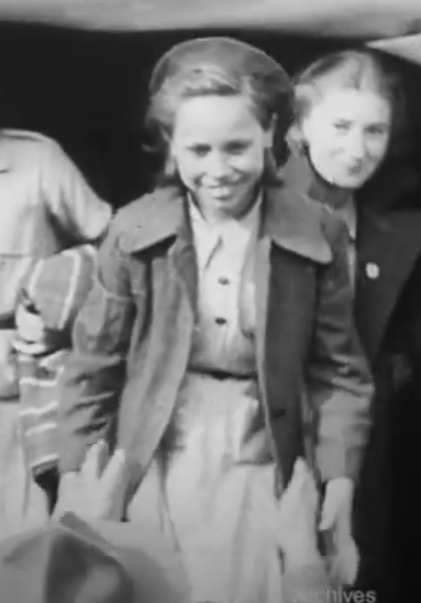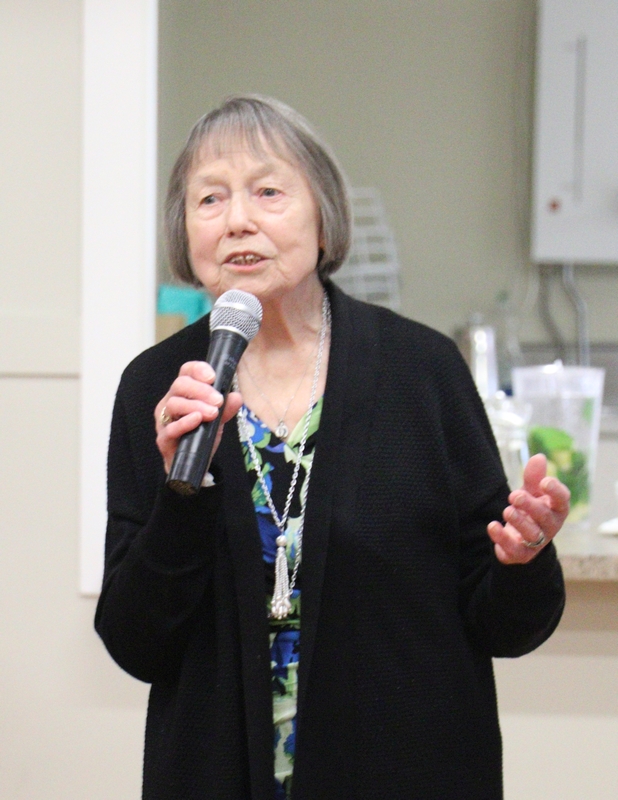Henryka Aulich Blackler, 1930–2022
Pani Henia learnt about life by living it.

She learnt the sound and enormity of German bombers in 1939, aged eight. She and other children walked home from school one day as strange, huge machines flew overhead, on their way to bomb Łomża. She lived on a hill outside the city, and watched what she came to know as aeroplanes drop bomb after bomb, day after day, and night after night, until the city centre was a smouldering ruin.
Pani Henia was named after her carpenter father, who had been working on the Łomża cathedral. He walked into the city to check on his work once the bombing stopped, and was captured by German troops.
Within two weeks the Germans melted away and their allies, the Russians, took over. For nearly two years her mother quietly raised her eight children alone. They weren’t quiet enough, and Russian soldiers captured the rest of the family in June 1941, a date that coincided with Hitler’s re-invasion of Russian-occupied Poland, then Russia itself.
Pani Henia’s mum and her younger seven children were on one of the last cattle trains that Stalin used to transport Poles to the USSR to work as forced labour. They ended up in Kazakhstan, a place with little shelter, work, or food. Ultimately, her mother saved her middle five children by putting them on a train destined for the USSR border.
I know that Pani Henia did not forget any of that, because they were the first stories that tumbled out when I interviewed her.
Her early life was not easy, and one would have thought that when she arrived here in 1944 with three of her younger brothers, she would have been able to build on that sibling bond. But in 1948, Pahiatua Children’s Camp authorities forced her brothers to return to Poland to their widowed mother—destitute in post-war communist-controlled Poland—and left 17-year-old Henia alone in New Zealand.
When Pani Henia went to Poland to see her dying mother in 1986, her brothers showed her the basement room allocated to the family of six by the regime in Poland. But in 1948 in New Zealand, her brother Anton still had nightmares about his time in Kazakhstan, and kept running away from the Pahiatua camp to look for “shelter.” And, after spending a school holiday at the Pahiatua camp, her brother Peter let it slip that he did not want to become a priest after all.
During the hours of our conversations, which led to the story linked to below, never once did Pani Henia hint of “poor me.” Instead, she had a strength, a light within her that made her one of the most positive and kindest people I have ever met. The last time I saw her, she was arranging a dinner for a neighbour, worrying about others.
Henryka Aulich Blackler died on 2 January 2022.

I didn’t know her family in New Zealand, but I know how much she meant to the Polish community in Christchurch. She loved to sing—here in 2019 at the 75th anniversary of arriving in New Zealand with 732 other Polish children and their caregivers.
Pani Henia, you had the voice of an angel, and are one. You managed to find peace here on earth. I cannot imagine the peace ahead of you among the angels in heaven.
Pani Henio, byłaś taką wyjątkową osobą. To był dla mnie takie zaszczyt, że mogłam Cię spotkać i lepiej poznać.
Spoczywaj w pokoju.
—Basia Scrivens
31 January 2022
_______________
The top photograph is a still from the Weekly Review newsreel No. 169 https://www.nzonscreen.com/title/nz-soldiers-and-polish-children-weekly-review-no-169-1944. Anna Gruczyńska took the 2019 photograph.
Henia Aulich Blackler’s story is available at https://polishhistorynewzealand.org/henryka-aulich-blackler/
_______________
If you would like to comment on this post, or any other story, please email editor@polishhistorynewzealand.org/
